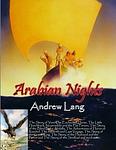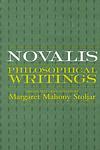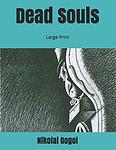Pour une Bibliothèque Idéale
This is one of the 288 lists we use to generate our main The Greatest Books list.
-
One Thousand and One Nights by Unknown
This is a collection of Middle Eastern folk tales compiled during the Islamic Golden Age. The stories are told by a young woman, who must weave a new tale each night for her husband, a king, to delay her execution. The tales are filled with magic, adventure, love, and betrayal, and include well-known stories such as "Aladdin's Wonderful Lamp", "Ali Baba and the Forty Thieves", and "The Seven Voyages of Sinbad the Sailor".
-
Lord Jim by Joseph Conrad
The novel revolves around a young, idealistic British seaman, who commits a crime of cowardice at sea. He abandons his ship, leaving hundreds of passengers to their fate. He is publicly censured for this act and spends the rest of his life in shameful obscurity in the South Seas, trying to repress the guilt of his past and regain his lost honor. His quest for redemption leads him to a remote island where he gets a chance to prove his courage, but his tragic flaw ultimately leads to his downfall.
-
Philosophical Writings by Novalis
"Philosophical Writings" is a collection of works by a key figure in German Romantic philosophy. The book explores the author's thoughts on a wide range of subjects including art, religion, morality, nature, and the human mind. The author's poetic and imaginative style of writing is used to challenge traditional philosophical ideas and to propose a more holistic understanding of the world. The text is recognized for its deep insights and its significant influence on later philosophical and literary movements.
-
Thus Spake Zarathustra by Friedrich Nietzsche
This philosophical novel explores the idea of the Übermensch, or "Overman," a superior human being who has achieved self-mastery and created personal meaning in life. The protagonist, Zarathustra, descends from his solitary life in the mountains to share his wisdom with humanity. Through a series of speeches and encounters, he challenges traditional beliefs about good, evil, truth, and religion, and advocates for the transcendence of man into a higher form of existence. The book is noted for its critique of morality, its poetic and often cryptic language, and its exploration of complex philosophical concepts.
-
Three plays: The hostage, Crusts, The humiliation of the father by Paul Claudel
This collection of three plays offers a deep exploration of human emotions, societal norms and familial relationships. The first play, 'The Hostage', revolves around the complexities of love and sacrifice. The second play, 'Crusts', delves into the struggles of poverty and the human spirit's resilience. The final play, 'The Humiliation of the Father', portrays the dynamics of a dysfunctional family and the impact of parental behaviour on children. Each play, while distinct in their narratives, collectively provides a profound commentary on human nature and society.
-
Wry-Blue Loves: Les Amours Jaunes by Tristan Corbière
"Wry-Blue Loves: Les Amours Jaunes" is a collection of poems that explore themes of love, death, and the sea. Written in a unique style that blends irony, sarcasm, and a sense of melancholy, the author uses vivid and sometimes shocking imagery to challenge conventional romantic ideals and express his own disillusionment with love and life. The sea serves as a recurring motif, symbolizing both the author's Breton heritage and the unpredictable, often cruel nature of existence.
-
Les Contemplations by Victor Hugo
"Les Contemplations" is a collection of poetry that explores themes of love, nature, and spirituality. The work is divided into two parts, with the first half focusing on the author's personal experiences, including his childhood, his family, and the loss of his daughter. The second half, in contrast, delves into more philosophical and existential themes, reflecting on the nature of life, death, and the human condition. The poems are renowned for their lyrical beauty, emotional depth, and profound exploration of human experiences.
-
La Nuit obscure by Jean de la Croix
"La Nuit obscure" is a profound spiritual poem that explores the journey of the soul from its bodily home to its union with God. The author uses the metaphor of a dark night to represent the hardships and struggles the soul endures in its quest for divine love and ultimate spiritual enlightenment. The poem is a guide for spiritual growth, encouraging individuals to seek purification and detachment from worldly desires in order to achieve a deeper, more intimate relationship with God.
-
Dead Souls by Nikolai Gogol
In this satirical novel, a man travels through Russia buying up the titles to deceased serfs (or "souls") from their naive landowners, under the guise of a get-rich-quick scheme. However, his real plan is to use these "dead souls" to create a phantom estate and secure a massive loan. The story explores the corruption and greed prevalent in 19th-century Russian society and provides a unique perspective on the human condition.
-
The Aeneid by Virgil
This epic poem tells the story of Aeneas, a Trojan who travels to Italy, where he becomes the ancestor of the Romans. It includes a series of prophecies about Rome's future and the deeds of heroic individuals, and is divided into two sections, the first illustrating the hero's journey and the second detailing the wars and battles that ensue as Aeneas attempts to establish a new home in Italy. The narrative is deeply imbued with themes of duty, fate, and divine intervention.
-
The Diary of a Country Priest by Georges Bernanos
"The Diary of a Country Priest" is a novel centered around a young, inexperienced priest assigned to his first parish in rural France. The narrative unfolds through the priest's diary entries, revealing his struggles with his health, faith, and the indifference or hostility of his parishioners. Despite the hardships, the priest remains committed to his vocation and the spiritual welfare of his community. His journey is marked by self-doubt, loneliness, and a humble yet profound understanding of suffering and grace.
Raymond Queneau, 111 Books
"In the early 1950s Raymond Queneau asked several dozen French authors and critics to list the hundred books they would choose if they had to limit themselves to that number. He reproduced all their responses in the book Pour une Bibliothèque Idéale (Gallimard, 1956), along with the overall top 100 list reproduced above."
Added over 9 years ago.
This list has a weight of 80%. To learn more about what this means please visit the Rankings page.
Here is a list of what is decreasing the importance of this list:
- List: only covers mostly "Western Canon" books
- Voters: are mostly from a single country/location
If you think this is incorrect please e-mail us at [email protected].










